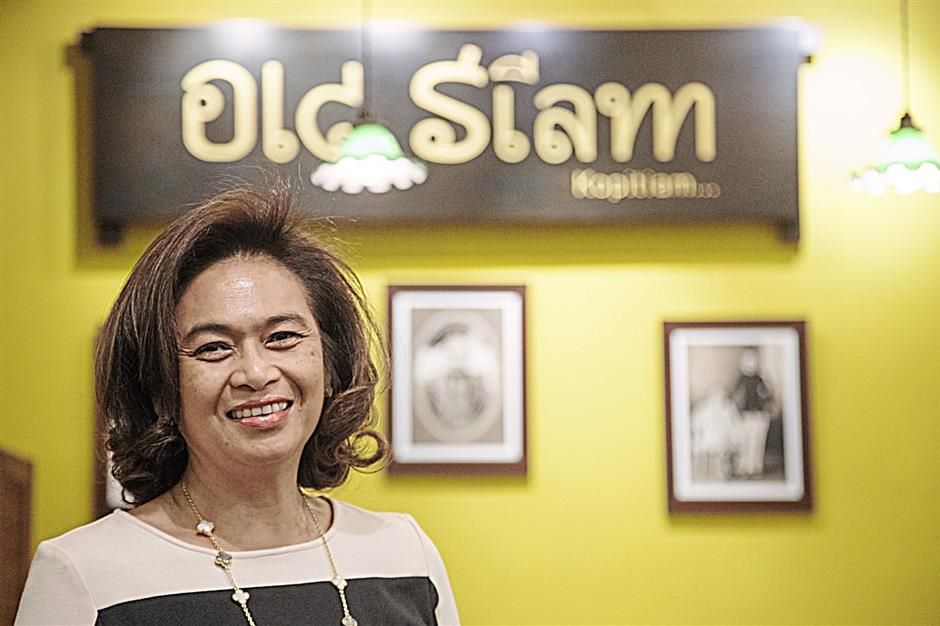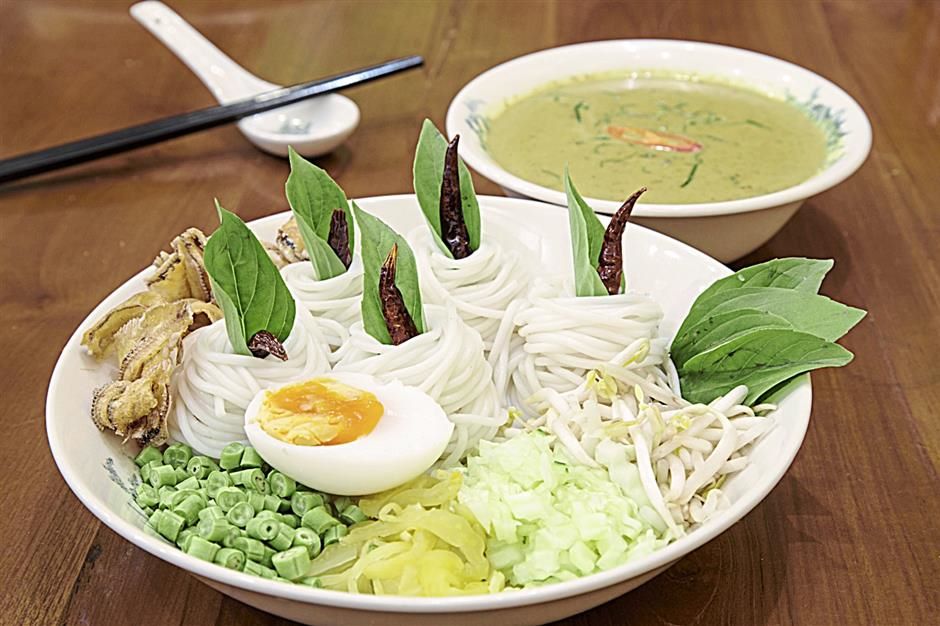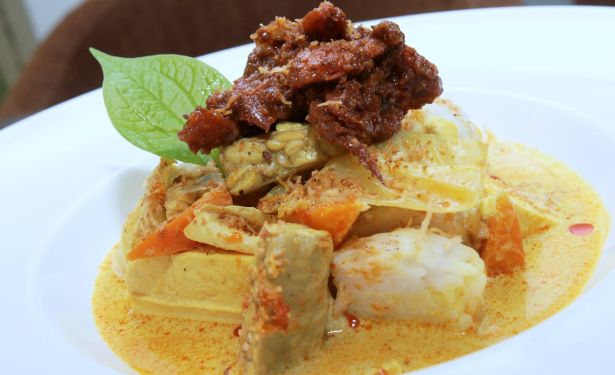For heavenly Thai food at down-to-earth prices, the mall has it.
OLD SIAM KOPITIAM
1 Utama Shopping Centre
Lebuh Bandar Utama
Bandar Utama
47800 Petaling Jaya
Selangor
Tel: 03 7727 7768
Hours: 10.30am to 10pm daily
SHE’S behind restaurants such as Montien and Surisit, but her name may not strike a chord even among Thai food lovers.
To insiders, Sita Jayadeva is Klang Valley’s diva-chef of Thai cuisine. She’s part Indian, Thai and Myanmar, but her cuisine sense however, is true blue, dyed-in-the-silk Thai.
After exiting active running of Surisit in Taman Tun Dr Ismail, she opened Old Siam, a 50-seater kopitiam-style restaurant in the 1-Utama Shopping Centre in Petaling Jaya, which she runs with her older brother Glen.
Old Siam is not posh (like Montien), but the food is really something to go back for. For so unassuming an eatery – and in a mall’s busy food section, no less – the quality and authenticity of the food far surpass the taste and value-for-money for the category it competes in.
Old Siam is able to deliver authentic flavours because of Jayadeva’s long association with Thai food. Her Myanmar-Thai mother owned and operated Café d’Chiang Mai, the first Thai restaurant in Penang, and Jayadeva was literally brought up in its kitchen; admittedly little Sita was quite her daddy’s little darling, and she was allowed to be a diva even back then.

The Tauhu Yat Sai, a crispy pork – stuffed tofu with tangy dipping sauce.
She is no food snob, but Jayadeva is particular about the origins of her ingredients. She knows the difference Thailand-sourced ingredients make to the purity of the food she serves. As such, many of her ingredients are imported from Thailand, including the shrimp paste (kapi or belacan), chillies and sauces.
Another thing that sets Old Siam apart is that everything is made fresh at the restaurant. Nothing comes pre-packaged or out of a box. And surprisingly for a mall-based restaurant, Old Siam offers non-halal food.
As Jayadeva tells it, “Old Siam started business in April 2013. We wanted to offer more street food as opposed to traditional Thai food since we have all these recipes from my mother.
“Our concept was to have reasonably priced, one-dish items for quick serving and eating, catering to the office crowds. We wanted to offer halal food, but the mall management requested us to go non-halal and guided us on the price structure for the dishes.”
If the crowds are anything to go by, Old Siam has certainly filled a niche with the work crowd as well as mall-goers. While there is some level of Malaysianisation of the cuisine, the food is still more Thai than many other Thai restaurants.
“In Thailand, the laksa (khanom jeen nam ya pla) is served at room temperature. We tried to serve it like that, but diners kept sending the food back complaining it was cold, so we now serve it piping hot. Also, in Thailand, this laksa is not served with so much liquid. It is a gravy, as opposed to a soup, but our patrons always asked for more gravy, so now we serve it with more, to cater to local dining preferences,” shares Jayadeva.
Serving temperature and gravy preferences aside, Old Siam’s food keeps to all that makes Thai street food so mouthwatering. The Hormok (fish otak otak, RM8.90 for two parcels) is served with bread, and is pure fish and coconut milk. No flour is used, and the tenggiri chunks are both visible and succulent. The recipe is inherited from Café d’Chiang Mai, according to Jayadeva.
The Tauhu Yat Sai, RM8.90, is bean curd stuffed with pork and fried, served with a tangy dipping sauce. Light, fluffy and crisp, it is non-greasy, with the tofu being crunchy and the pork remaining moist.
Food presentation is another surprising thing about Old Siam.
All the items are plated with care, and the laksa, RM12.90, comes out in individual noodle nests, surrounded by the accompanying diced long beans, bean sprouts, Thai basil leaves and cucumber, all tidily arranged. The dish also comes with half a soft-centred boiled duck egg, the yolk brilliantly orange against the white.
Even the simple Nasi Ulam and Khao Kruk Kapi (belacan rice with sweet tamarind pork) are pretty to look at, surprising with the depth of flavour and the near-perfect taste and texture of all the ingredients.
It is possible that you may find some of the sweet elements in the food a little much, but this is really the way the Thais eat it, balancing sweet with the heat of chillies or strong herbs and fresh vegetables.
Like all natural cooks, Jayadeva and her brother Glen, the quiet force in the kitchen, used to rely on instinct to prepare food, but since going commercial, she has set stringent measures for the weighing and measuring of ingredients to ensure that taste is consistent. She also drops in for spot checks to ensure that the high standards are kept up.
Old Siam offers a small selection of desserts, with the two most usual items, Thab Thim Krob (water chestnut and jackfruit in coconut milk, RM7.90) and Khao Niau Ma Mueng (Thai mango with glutinous rice, RM10.90). A more rare dessert, Kluay Buad Chee (steamed banana in coconut milk, RM6.90) is only available when the right kind of plantain bananas is available.






